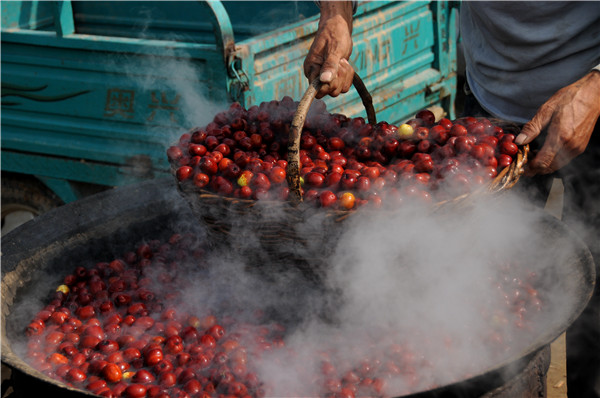When a fruit is also a tonic
Load up on this sweet delight and reap its healing benefits in cold winter


They are large, green and speckled with red-brown blotches with a small sharp pointed kernel. They tend to be crisp but dry and as you chew on the flesh, it dissolves on the tongue and becomes slightly starchy.
It is precisely this starchiness that makes them so good when dried.
In Beijing, the jujubes are often candied, or air-dried to a crisp. They macerate the jujubes in ejiao, which is a traditional medicinal tonic made out of donkey glue.
Beijing's signature roast duck also depends on the jujube for authenticity. To qualify as the genuine article, the duck must be roasted in a wood-fired oven using only jujube wood. Jujube wood gives the duck its characteristic fruity smokiness, as well as its burnished deep maroon color.
Dried Chinese jujubes are considered a warming food, a natural tonic, and it is often used in sweet soups that nourish body and soul.




































